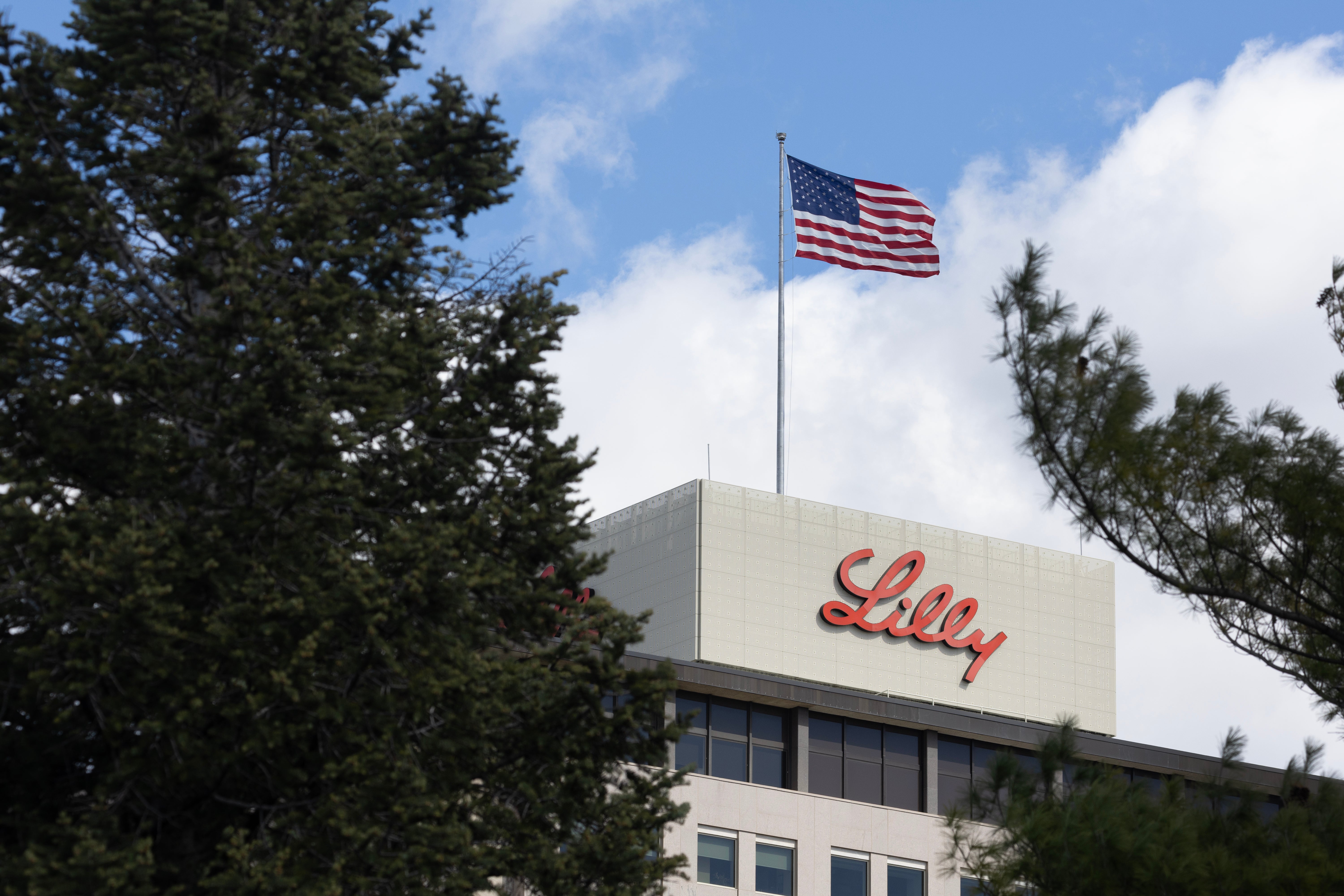‘Shock’ as study reveals how Eli Lilly’s weight-loss pill orforglipron stacks up against injection Wegovy

Eli Lilly’s experimental weight-loss pill delivered a 12.4 per cent body weight reduction in patients over 72 weeks, the pharmaceutical giant announced on Thursday.
However, the late-stage study results fell short of Novo Nordisk’s injectable Wegovy, which delivered 14.9 per cent weight loss over 68 weeks in a 2021 trial.
Lilly shares plummeted 14 per cent in premarket trading as investor expectations went unmet.
Unlike injectable obesity drugs, which are peptides mimicking the appetite-controlling GLP-1 hormone, orforglipron is a small molecule pill.
This makes it “easier to manufacture and package,” according to Kenneth Custer, president of Lilly’s cardiometabolic health division.
Lilly, whose injectable GLP-1 Zepbound competes directly with Wegovy, views the once-daily pill as a promising alternative to injections.
It “could be used for early intervention and long-term disease management,” Custer said – a strategy supported by patient preference for pills due to convenience and a dislike of needles.
“We have pretty big aspirations for how many patients orforglipron could help,” he said.
Custer added that Lilly still expects to file for regulatory approvals of the pill before the end of 2025.
The study of overweight or obese adults with weight-related health issues, but not diabetes, included more than 3,000 people.
On average, those who received the highest 36-milligram dose of orforglipron shed 12.4 per cent of their weight, versus 0.9 per cent for those who received a placebo.
Patients on the 6 mg dose of the Lilly drug lost 7.8 per cent of their weight.
After early trial results, expectations were high for the drug to do better than Novo’s Wegovy, Barclays analyst Emily Field said.
“(But) it’s worse than Wegovy so it’s a shock.”

The most common side effects seen in the study were mild-to-moderate gastrointestinal issues. The rate of nausea for high-dose patients was 33.7 per cent, while 24 per cent experienced vomiting, compared with 10.4 per cent and 3.5 per cent, respectively, for the placebo group.
At least two analysts said that the tolerability profile of orforglipron also came in below what was seen in the drug’s trial with diabetes patients.
“While we still see this as a manageable profile, rates of nausea and vomiting may be higher than investor expectations,” BMO Capital Markets analyst Evan Seigerman said.
Just over 10 per cent of the high-dose patients dropped out of the trial due to adverse side effects. No liver safety issues were seen, Lilly said.
At least three analysts said the market had been looking for orforglipron to match Wegovy’s results, with some expecting the pill to surpass Novo’s popular drug.
“That is a best case scenario for Novo … The competitive threat from Lilly is suddenly much weaker than anticipated,” Novo and Lilly shareholder Markus Manns said.
Zepbound and Wegovy currently dominate the weight-loss market, which some analysts expect to reach $150 billion by the early 2030s.

The U.S. Food and Drug Administration is reviewing a high-dose oral version of Wegovy for potential approval later this year. Novo said it helped overweight or obese adults lose 15 per cent of their body weight in a late-stage trial.
Custer said orforglipron can be taken without restrictions on food and water.
Lilly said orforglipron also lowered markers of heart disease risk, including cholesterol, triglycerides, and blood pressure, across all doses.
Wegovy has been approved to reduce the risk of major heart problems, and Lilly last week released data showing the heart-protective qualities of diabetes treatment Mounjaro, which has the same main ingredient as Zepbound. Heart disease approvals would greatly enhance the likelihood of insurance coverage for weight-loss drugs.
The company announced earlier in 2025 that a Phase 3 study found that type 2 diabetes patients lost nearly 8 per cent of their body weight after 40 weeks on orforglipron.
Lilly has also said it has begun manufacturing the drug in order to stockpile supply ahead of a commercial launch, which should help avoid shortages experienced when early demand for the injectables far outstripped supply.
The full results from the Lilly-backed trial will be presented in September at a major European diabetes meeting, the Indianapolis-based drugmaker said.




